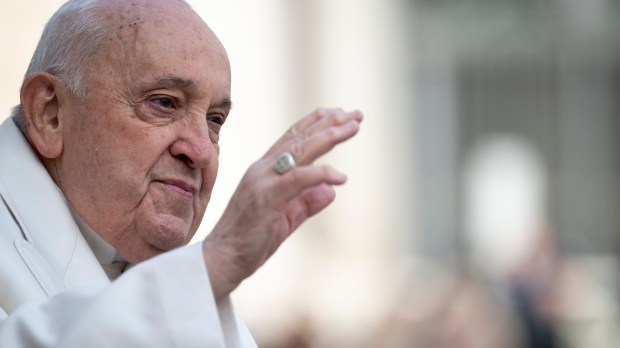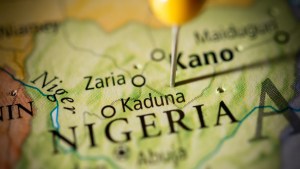Pope Francis warned against the danger of having a “tribal […] attitude,” during an audience with Rome’s Nigerian community in the Vatican’s Paul VI Hall on March 25, 2024. The 87-year-old Pontiff read his text this morning.
For the past month he has chosen to delegate the reading of most of his speeches to others, due to his continuing respiratory issue. On Palm Sunday, he did not deliver his homily, and instead chose to conclude the chanting of the Passion with long moments of silence.
As seen in images published by Vatican Media, the Pontiff warmly received Rome’s Nigerian Catholic community, including dozens of priests and nuns.
“The diversity of ethnicities, cultural traditions and languages in your nation is not a problem but a gift that enriches the fabric of both the Church and the larger society,” the Pope told them.
He praised the “richness” of the diversity in Nigeria, which helps “promote the values of mutual understanding and coexistence.” However, he also warned them against “the danger of being closed, of not being universal but being closed off […] in a tribal isolation.”
“Your roots become closed, isolated in this tribal and not universal, not communal, attitude. Community yes, tribe no. This is very important. And it applies to all of us, to everyone, each according to his or her position,” the Pope said. “Universality does not mean locking oneself into one’s own culture. True, one’s own culture is a gift, yet not to close it off, but to give it, to offer it. Universal, universality.”
Not a new topic
Since his election in 2013, the Pontiff has often spoken out against “tribal” reflexes on the African continent. Asked about this issue on the flight home from his 2019 trip to Mozambique, Madagascar, and Mauritius, he said this was a “cultural problem” that the continent must resolve.
“We commemorated the 25th anniversary of the Rwanda tragedy not long ago: It is an effect of tribalism,” he insisted during that press conference, recalling his trip to Kenya four years earlier in 2015. “I remember in Kenya, at the stadium, I asked everyone to stand up and join hands and say ‘no to tribalism, no to tribalism!’”
In 2022, Pope Francis took observers by surprise when he created as a cardinal Bishop Peter Okpaleke, a Nigerian prelate who had been rejected by his diocesans for not belonging to the same ethnic group. Bishop Okpaleke was forced to resign in 2018 before being appointed bishop of a diocese created for him two years later.
The Pope prays for the country’s security
In his March 25 address the Pope also mentioned the different conflicts around the world and highlighted the “period of hardship” that Nigeria is experiencing. It tops the list in terms of places where most Christians are persecuted, with estimates saying some89% of Christians killed throughout the world are located in Nigeria.
The Holy Father offered his prayers “for the security, unity, and spiritual and economic progress” of the country, which has been regularly plagued by violence. During an Angelus prayer last February the Pope had expressed his concern about the “increasingly frequent kidnappings in Nigeria,” that is Africa’s most populous country.
Also in December 2023, Pope Francis expressed his compassion for the victims of the “serious violence” that left around 200 dead during the Christmas celebrations in the State of Plateau. “May God free Nigeria from these atrocities!” he exclaimed.
Concluding the meeting at the Vatican on March 25, the 266th Pope urged “everyone to foster dialogue and listen to one another with open hearts, excluding no one at the political, social and religious levels.”
“I encourage you to be heralds of the Lord’s great mercy, working for reconciliation among all your brothers and sisters, helping to ease the burdens of the poor and those most in need and adopting as your own God’s style of closeness, compassion, and tender love,” the Pope said.


